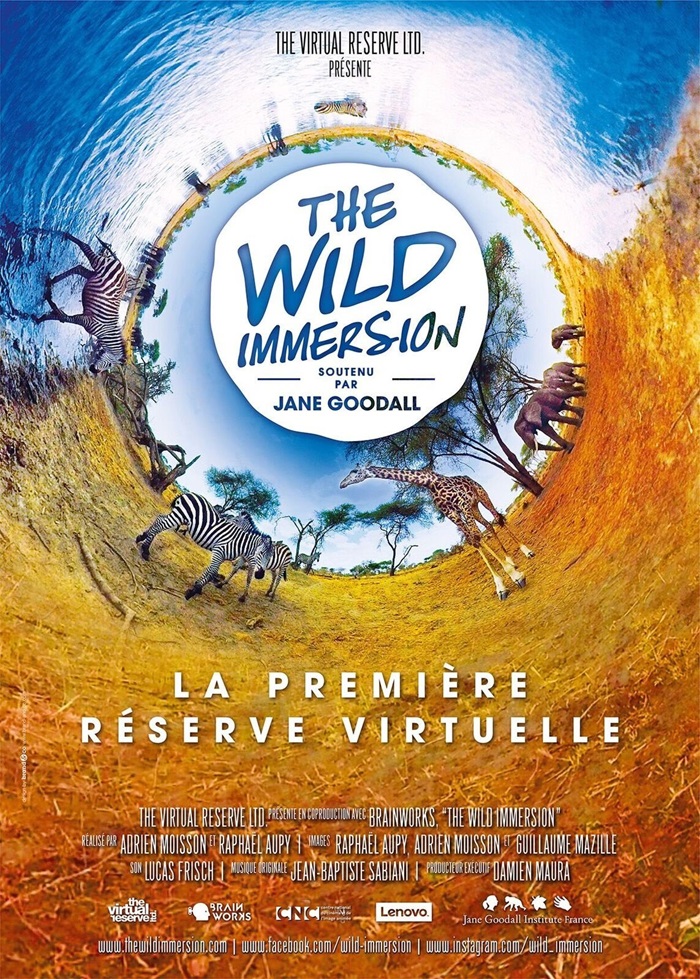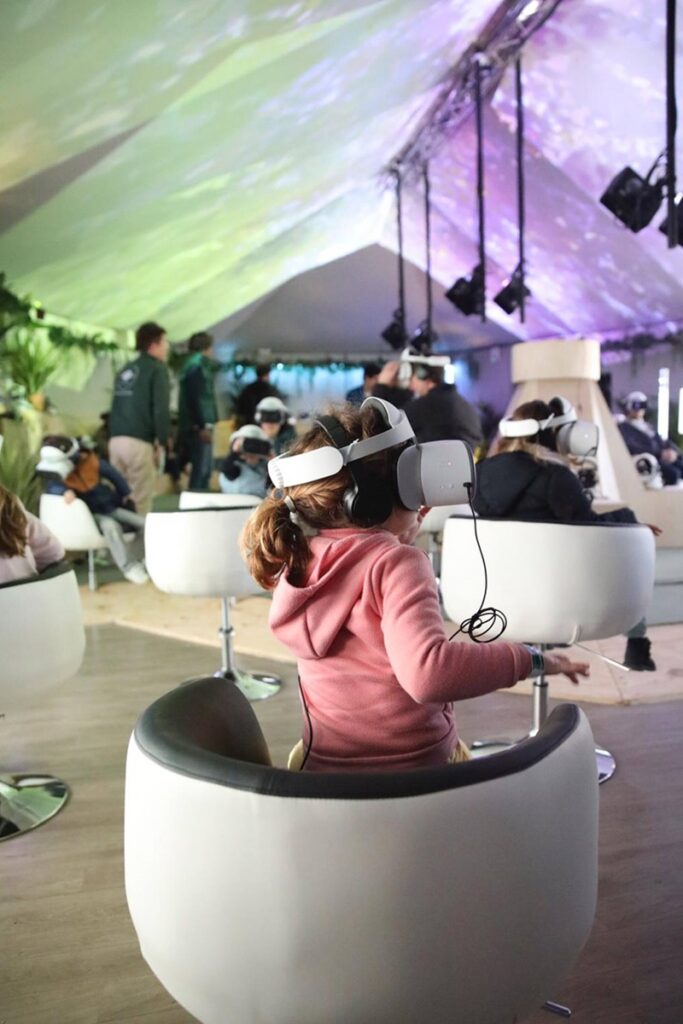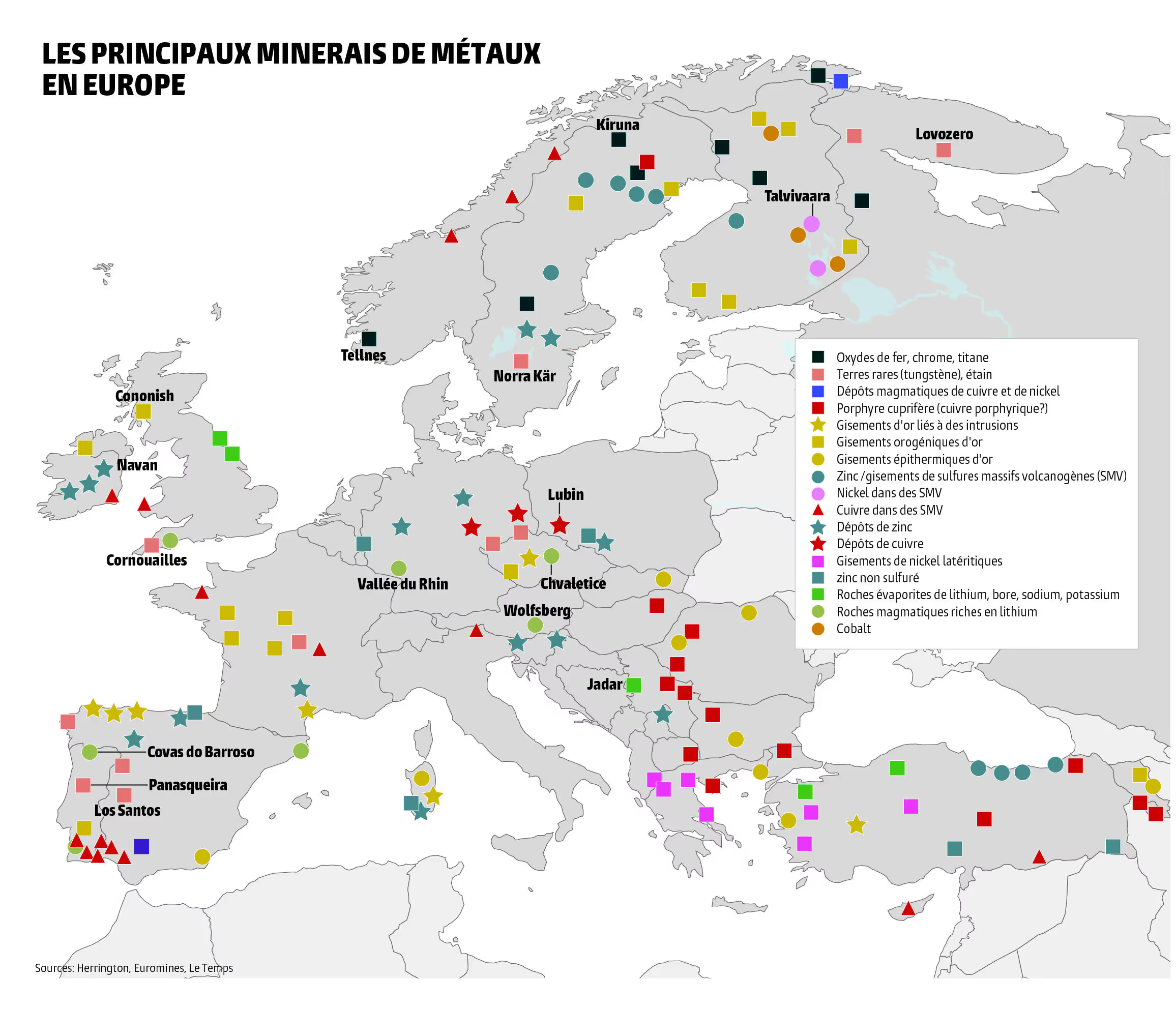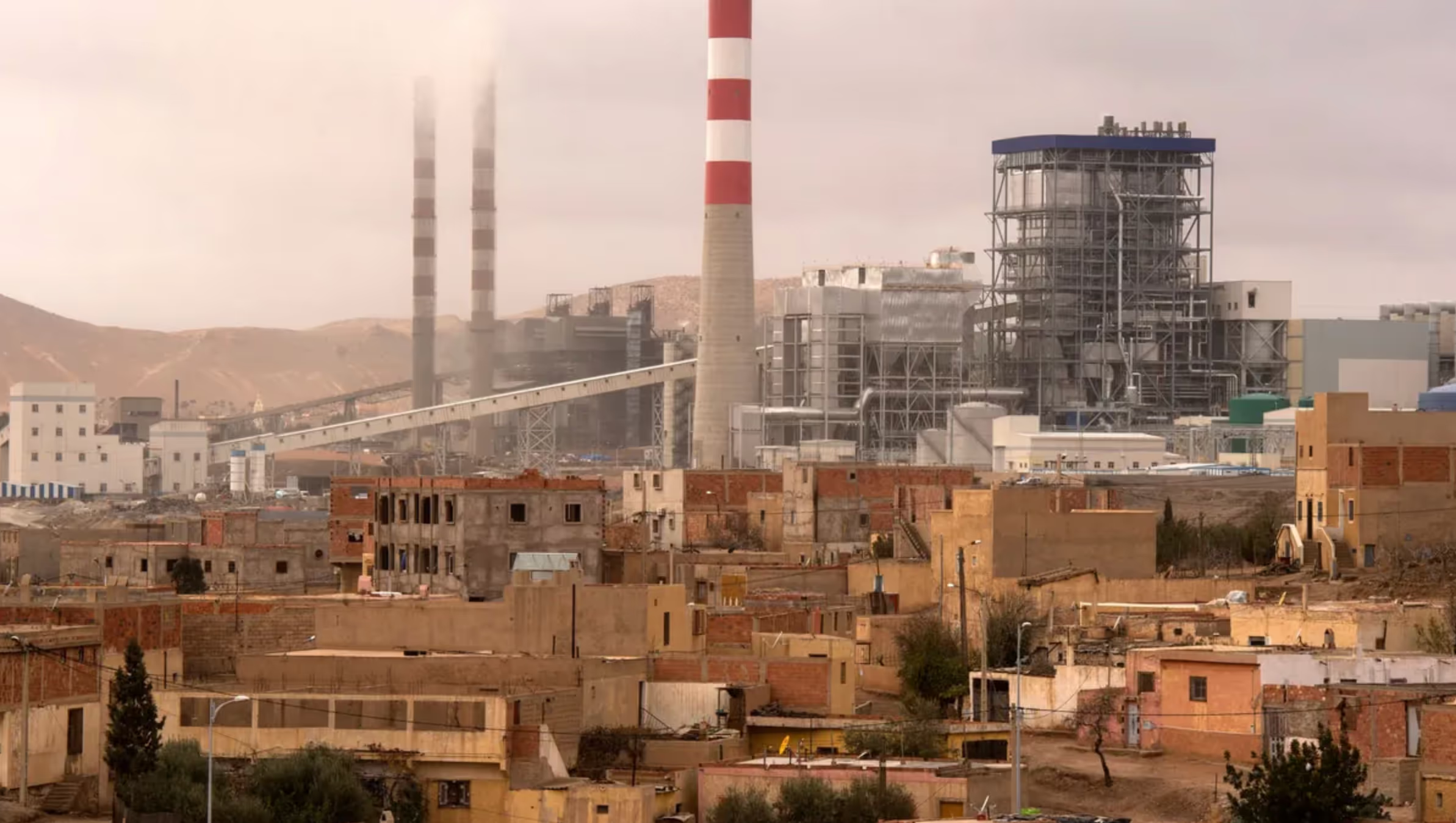We translated an interview with Peter Kahn, a psychology professor at the University of Washington who is interested in the links between the destruction of nature and technological development.[1]. Even if Kahn's criticism of technology remains fairly superficial, this interview appeared in 2017 in the economic media Quartz teaches us several important things:
- Contrary to what technologist propaganda claims, nature images and technologies sold in order to bring us closer to nature bring us very limited benefits. Worse, they could further widen the chasm that separates us from real nature.
- Kahn is at the origin of the notion of “environmental generational amnesia”, which partly explains the apathy of highly industrialized and urbanized humanity in the face of the destruction of ecosystems.
- The drastic reduction of wilderness — that is, autonomous beings that no one controls — in our daily environment leads, according to Kahn, to reinforce the feeling that a normal world is a world where everything should be dominated and controlled by humans.

Peter Kahn is a professor of psychology at the University of Washington. He has devoted much of his career to analyzing the relationship between humans and nature. For him, this relationship is much more fragile than we generally think.
Kahn strives to understand the intersection of two modern phenomena: the destruction of nature and the expansion of technology. As director of the HINTS (Human Interaction with Nature and Technological Systems Lab) at the University of Washington, Professor Khan studies the relationships between humans and real nature and “virtual” or “technological nature.” In other words, he is interested in digital representations of wilderness, such as animal documentaries, video games, and virtual reality.
Virtual nature has its advantages: interacting with it provides us with well-being by using our “biophilia”, a term that refers to the innate, essential feeling of belonging of humanity to its environment. For example, researchers found that nature videos shown in prisons significantly reduced violence among inmates, which suggests that the relaxing influence of nature is transmitted through screens. Studies have also shown that watching planet Earth brings joy to viewers and significantly reduces their anxiety. Other research has shown that employees who work in offices equipped with plasma screens that broadcast video from outside are happier and more productive than their counterparts working in rooms that don't have windows.
We are looking for these alternatives to nature as society urbanizes and wild spaces become more difficult to access. However, virtual nature has limits, and it cannot provide the soothing, creatively stimulating and restorative benefits of a walk in the forest.
Kahn fears that by developing an ever more realistic virtual nature, we risk moving further and further away from reality. If we accept a digital substitute for interactions in nature, our fundamental sense of belonging to nature could eventually be at risk.
Quartz spoke to Professor Kahn about the growing influence of virtual nature and why humans will be unable to invent an alternative to foster meaningful connections with their environment.
What benefits do humans derive from their relationship with nature and how does that relationship change as we advance technologically?
Nature is necessary for our physical and psychological well-being. Interacting with nature teaches us to live in relationship with others, not to dominate them: we cannot control the birds that fly over our heads, or the moon that rises, or the bear that walks where it wants. In my opinion, one of the main problems of the modern world is that we see ourselves as a species that needs to dominate everything instead of living in relationships with other people and with the natural world.
Can technological experiences in nature, such as simulations of nature in virtual reality or video games, provide benefits comparable to those obtained from time spent in real nature?
We are reaping the benefits of virtual nature, but we don't realize what this substitute is lacking. Let's take an example. More and more people are climbing in rooms dedicated to this purpose. In the past, people climbed outside. We had endless freedom of choice on a rock face. We were faced with all weather conditions, and we had to adapt accordingly. But in a gym, freedom is curtailed. It's better than nothing, but it's not as good as nature.
Now, technology must be added. A master's student from the University of Iceland, Ryan Parteka, recently visited me in my research lab. Ryan had with him virtual reality images that he had taken in the heart of the wildest areas of Iceland. With his help, I viewed these images. I put on the virtual reality glasses and found myself in Iceland, on vast plains. It was afternoon and the wind was starting to blow. I heard it blowing loudly, but it was disconcerting because I didn't feel it. Even more troubling, I didn't have to do anything, I didn't need to take care of myself. However, when I actually went for a walk in wild places with such strong wind, I immediately put on a hat to keep my head warm and an extra layer of clothing. But I am experiencing this simulation of the Icelandic wilderness virtually from the safety of a research laboratory inside a heated building in Seattle.
Our connection with nature needs meaning. A powerful form of meaning is taking care of yourself so you don't get hurt and be able to thrive. If you remove meaning, you get an impoverished experience.
Virtual nature is a debilitating nature. In the future, VR users will be able to travel more and even choose their own itinerary in an open VR space. This will offer more degrees of freedom, but when you hit your head against a virtual rock, what will happen to your head? Nothing at all! You are not truly connected to nature, but you cannot be freed from it either.

Why do humans seek technological nature when engaging in real life potentially offers more satisfaction, health benefits, and depth of experience?
We are a technical species — we always have been. But for hundreds of thousands of years, our techniques were rudimentary. As our minds evolved from Paleolithic to Neolithic and into the current era, so did our techniques. We are attracted to technologies not only because they are imposed on us by big firms, but also because of the very architecture of our being.
However, even though we are a technical species, there is an imbalance today. To thrive, we need more nature and wilder forms of interaction with wilder nature; I doubt we need tons of new technology.
[Peter Kahn here repeats the discourse of the dominant industrialist culture, an ethnocentrist discourse ignoring the infinite variety of political structures throughout history, where it is said that the obsession with technical progress, power and efficiency would be a universal characteristic of all human cultures since the appearance of our species; this is obviously false[2], NdT]
Do you envision a future in which virtual nature would significantly replace real nature? Could it one day replace nature?
In my opinion, we use virtual nature as a bonus and not as a substitute for real nature. Teens who grew up in urban areas can put on a virtual reality headset to see what a wild place looks like. But this visual experience is cut off from any meaning in terms of the interactions that can be had with nature in this place. If children grow up in more artificial areas, they have fewer experiences with real nature. And when these kids discover a virtual version of nature, they have fewer real experiences to rely on. So the physical and psychological benefits of the virtual nature that we are seeing in the current generation are likely to diminish with future generations.
What would be your ideal version of virtual nature?
An ideal version of virtual nature would at least be to keep this virtual nature “pure”. By this I mean that unnatural increases and images should not be superimposed on natural forms. But that's certainly what's going to happen with virtual reality. There will be a million ways for people to superimpose imaginary content onto the natural world, and we will no longer be able to distinguish real nature from what is simulated.
For example, I conducted a handful of studies with people who interacted with Sony's robot dog, Aibo, at the time it was put on the market. At some point, the designers modified Aibo so that it could read your email. It's a bit odd for a robot dog to read your email: it's the technological nature that takes mixed forms. Children will grow up with these new mixed forms of a technological nature.
Could you describe your theory of “environmental generational amnesia”?
I first became aware of the problem of generational environmental amnesia in the early 1990s when I interviewed children in downtown Houston, Texas, about their views and values about the environment. One discovery particularly surprised me: a significant number of the children interviewed understood the idea of air pollution, but for them Houston was not concerned. However, this city was then (and still remains) one of the most polluted cities in the United States.
For my part, when I woke up in the morning in Houston, I was suffocating from the smell of oil refineries, and my eyes were a bit itchy. How could these children ignore this pollution? One of the answers to this is that they were born in Houston and most of them never left that city; by living and growing up there, they built their baseline for what they thought was a normal environment. And that normality included existing pollution levels.
Based on this study, I suggested that humans of all generations are psychologically experiencing something quite similar to the children of Houston: we all build a conception of what is environmentally normal based on the natural world we experienced as children. Over the generations, the degradation of the environment increases, but each generation tends to see this degraded state as a normal experience. This is what I call “environmental generational amnesia.” This helps explain how cities continue to lose nature and why people don't really notice it — and when they do, they don't really see what the problem is.
https://youtu.be/VEKrTa_z-zk?si=lFHpbjHzPUdP4b61
Peter Kahn explains environmental amnesia (in English).
https://youtu.be/HKrNy5wqanA?si=SyN046KTqqAy5wqD
An explanatory video about environmental amnesia (in French).
What is the best way to build relationships with technological nature in order to deepen our relationship with the environment?
Preschoolers can be seen marveling more by using a microscope to examine nature than by looking at it with their own eyes. A smartphone app can help us identify plants or trees as we go for a walk in nature. But these examples don't take into account the major trends that shape our species. Ryan Parteka hoped that his virtual renderings of Iceland would make people love wild places and preserve them. But that's not going to happen. This noble vision championed by technology designers can be summed up by “Look, I am creating this technological nature so that people will come to love and appreciate real nature.” It won't be long before we discover that this idea is awfully naive.
People need to interact with real nature. The solution is not simply to talk more about nature or to create nature videos or other forms of virtual nature. No, the solution is to constantly deepen our interactions with nature and to have more wilderness to interact with.
Adrienne Matei
Translation: S.C.







